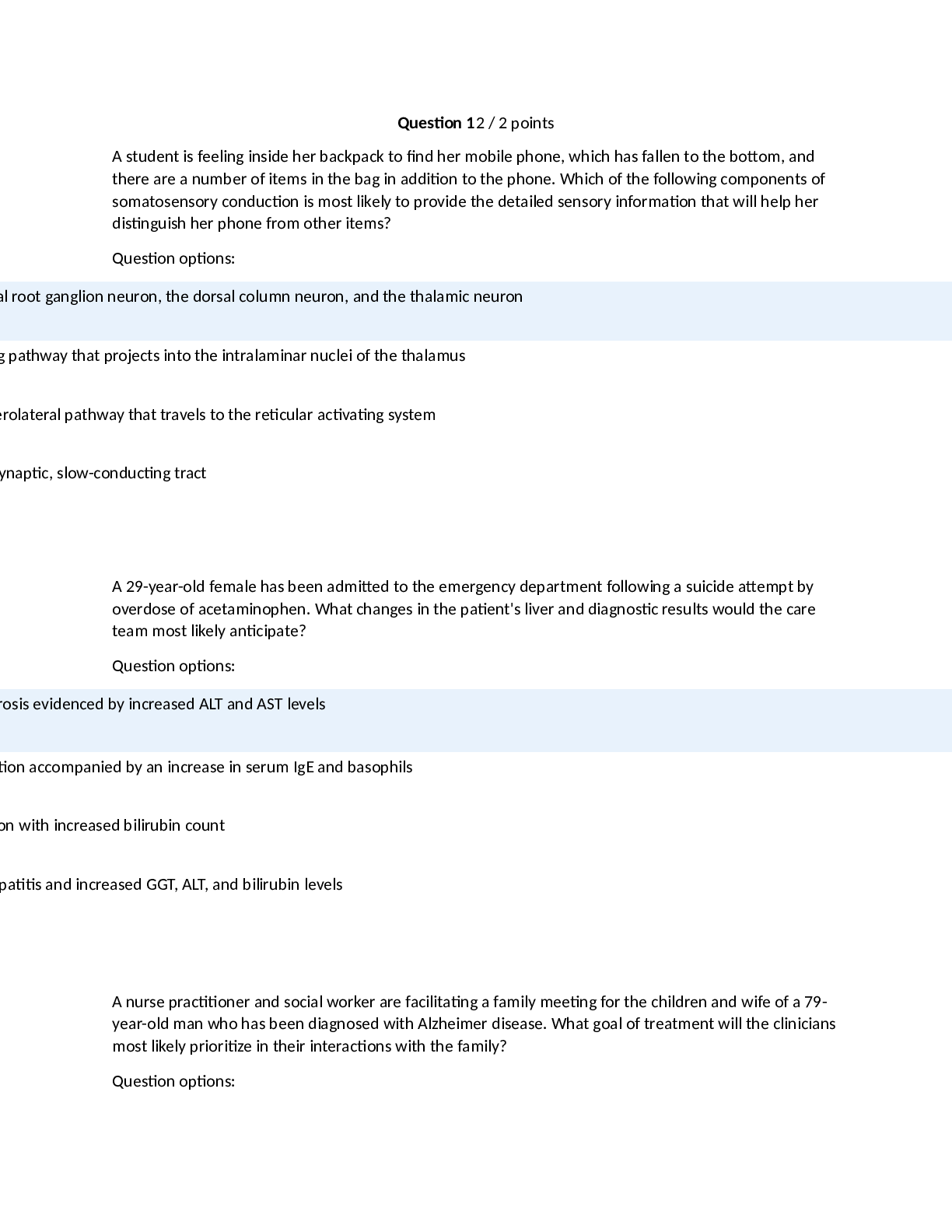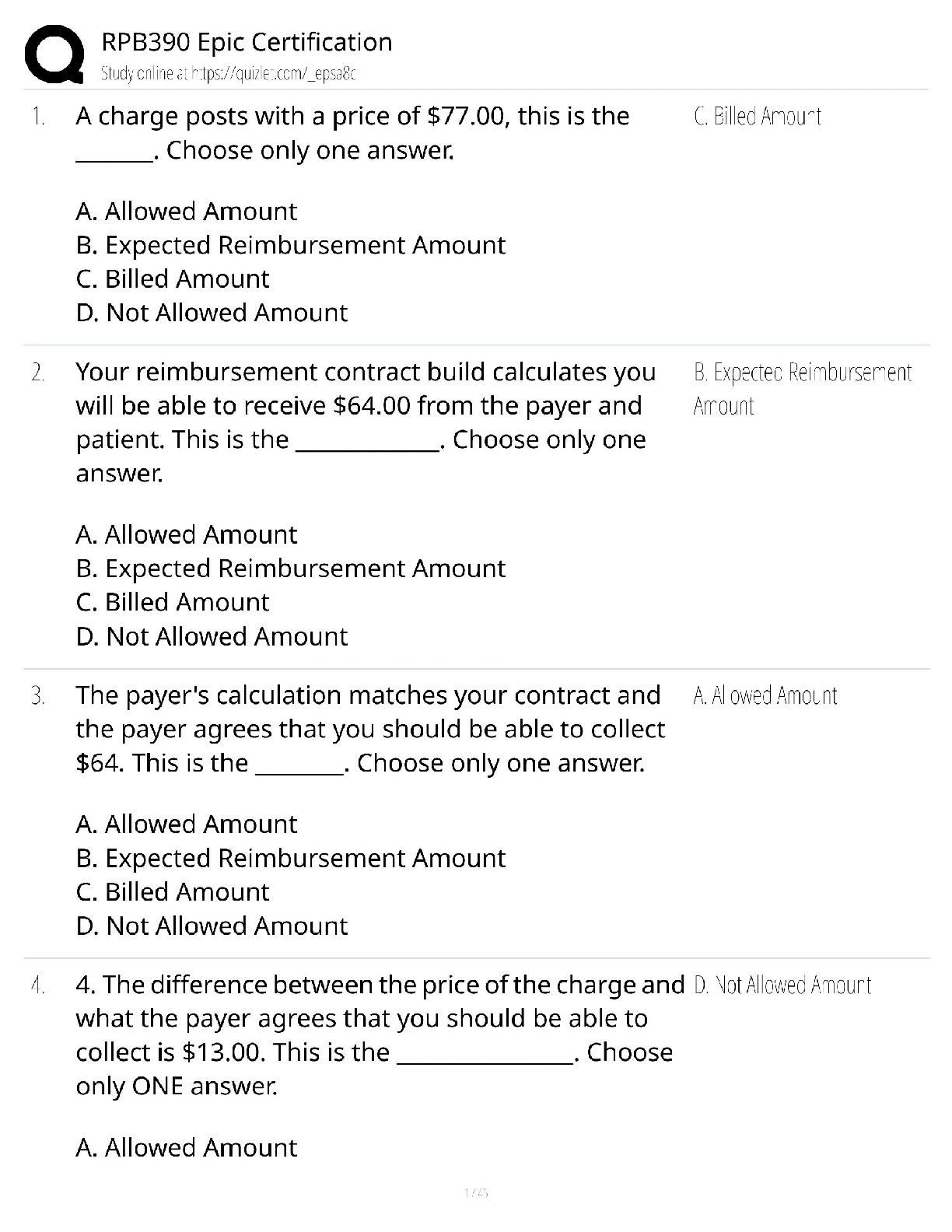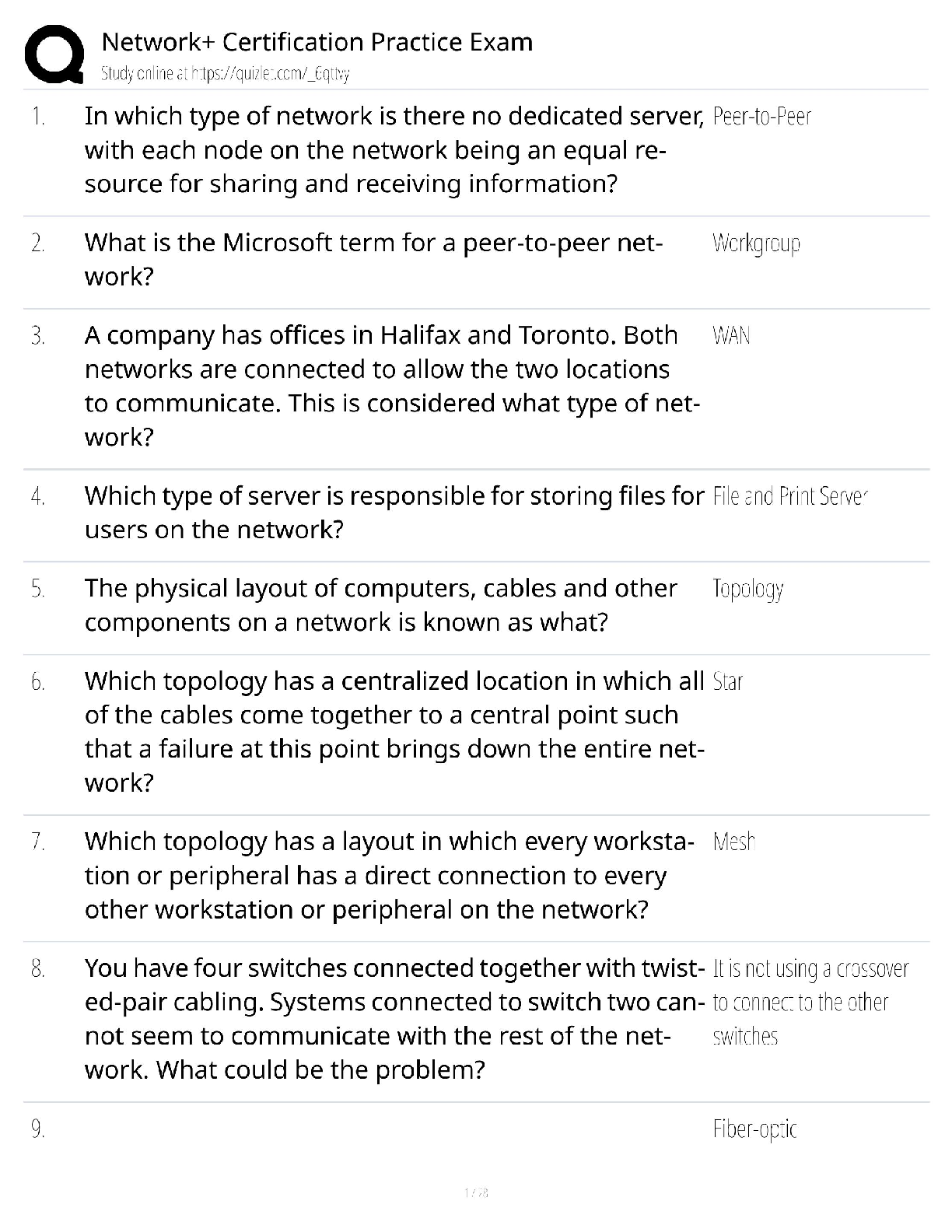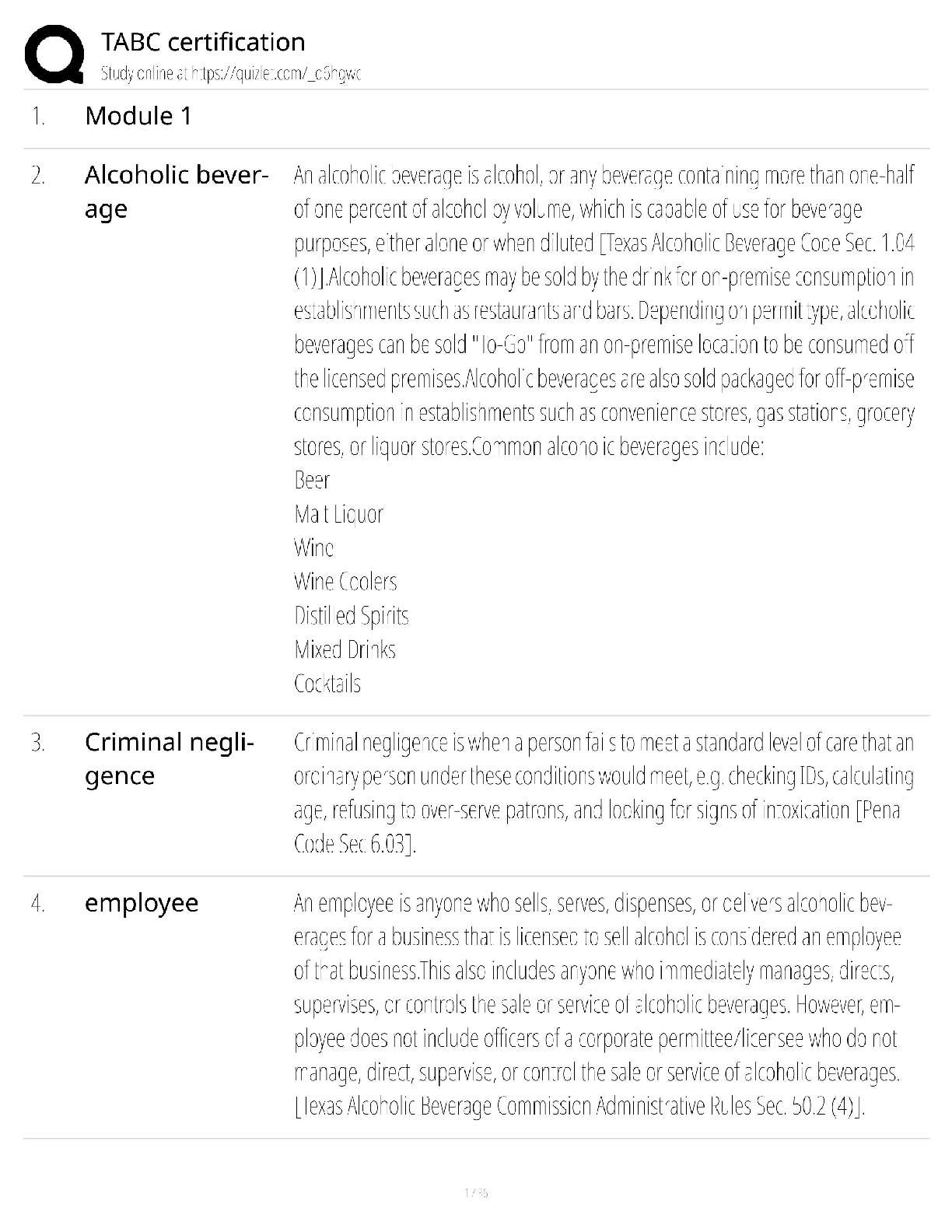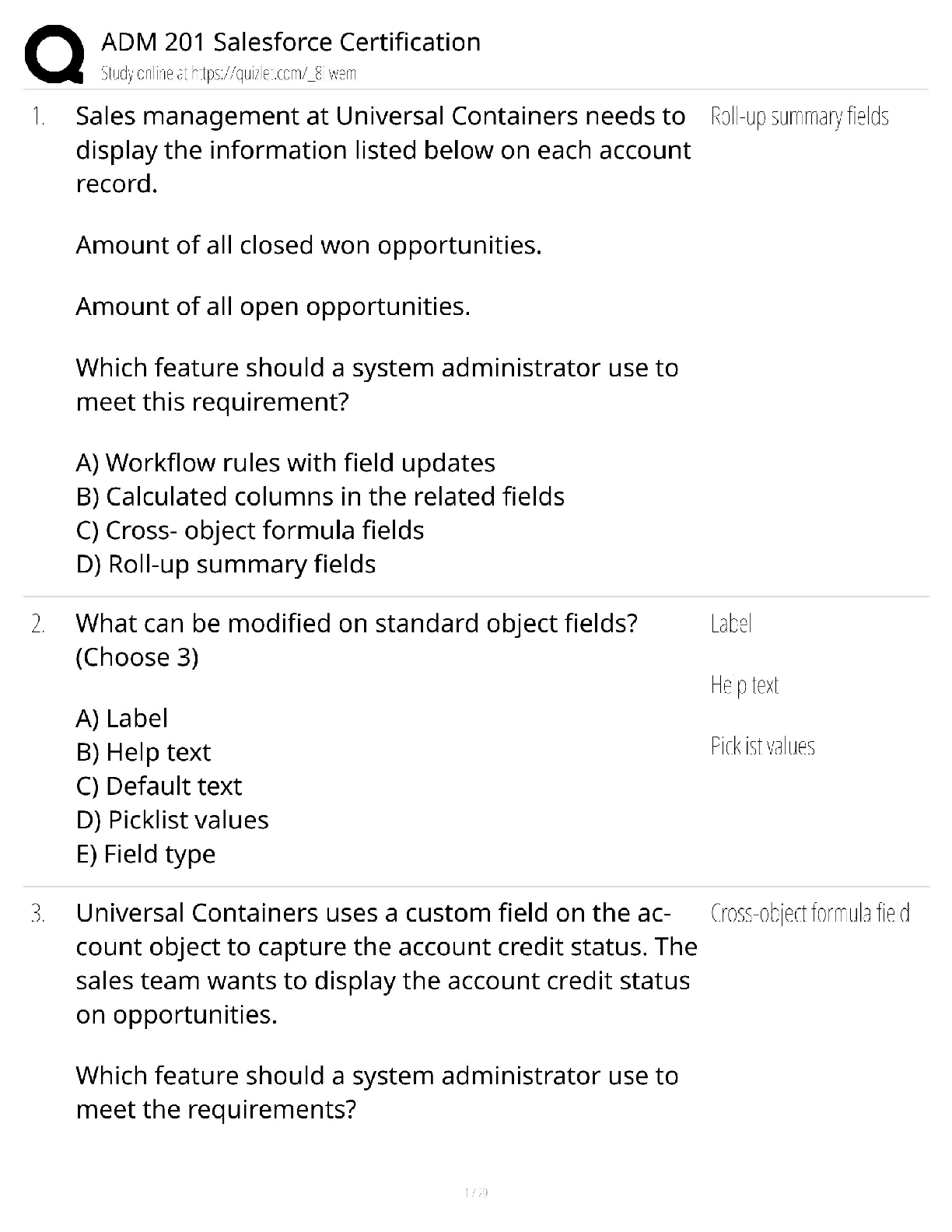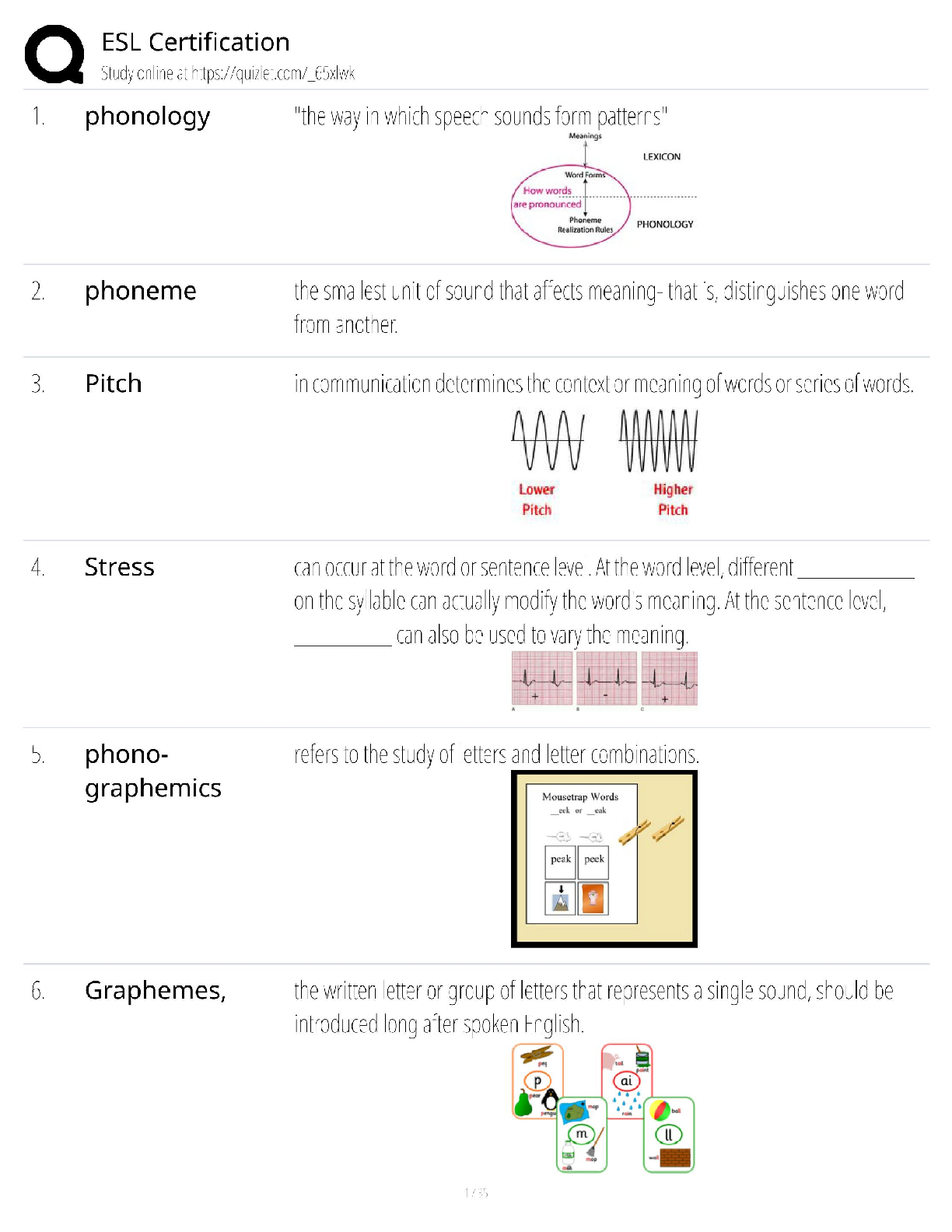*NURSING > QUESTIONS & ANSWERS > ADVANCE PRACTICE OF THE HISTORY OF INTERVIEWING AND PHYSICAL EXAMINATION STUDY GUIDE, 9th EDITION by (All)
ADVANCE PRACTICE OF THE HISTORY OF INTERVIEWING AND PHYSICAL EXAMINATION STUDY GUIDE, 9th EDITION by SEIDEL, MULTIPLE CHOICE QUESTIONS AND ANSWERS WITH EXPLANATIONS(100% CORRECT)
Document Content and Description Below
TOP: Discipline: Behavioral Science MSC: Organ System: General 8. MV. A. VWaWeV, ³M\ life iV jXVW WRR SaiQfXl. IW iVQ¶W ZRUWh iW.´ She aSSeaUV deSUeVVed. Which RQe of the following statements is ... the most appropriate caregiver response? a. ³TU\ WR WhiQk abRXW Whe gRRd WhiQgV iQ life.´ b. ³YRX VhRXldQ¶W feel WhaW Za\; lRRk aW all Whe gRRd WhiQgV iQ \RXU life.´ c. ³YRX caQ¶W meaQ ZhaW \RX¶Ue Va\iQg.´ d. ³If \RX WhiQk abRXW iW, QRWhiQg iV ZRUWh geWWiQg WhiV XSVeW abRXW.´ e. ³WhaW iQ life iV caXViQg \RX VXch SaiQ?´ ANS: E Specific yet open-ended questions are best used when the patient has feelings of loss of self-worth and depression. The other responses hurry the patient and offer superficial assurance. TOP: Discipline: Behavioral Science MSC: Organ System: General 9. During an interview, you have the impression that a patient may be considering suicide. Which action is essential? a. Immediately begin proceedings for an involuntary commitment. b. Ask whether the patient has considered self-harm. c. Ask whether the patient would like to visit a psychiatrist. d. RecRUd Whe imSUeVViRQ iQ Whe SaWieQW¶V chaUW aQd UefeU Whe SaWieQW fRU hospitalization. e. Avoid directly confronting the patient regarding your impression. ANS: B If you think the patient may be considering suicide, he or she probably is. Mentioning it gives permission to talk about it. TOP: Discipline: Behavioral Science MSC: Organ System: General 10. You are collecting a history from an 11-year-old girl. Her mother is sitting next to her in the examination room. When collecting history from older children or adolescents, they should: a. never be interviewed alone because this may alienate the parent. b. be mailed a questionnaire in advance to avoid the need for her to talk. c. be given the opportunity to be interviewed without the parent at some point. d. be allowed to direct the flow of the interview. e. be ignored while you address all questions to the parent. ANS: C An older child should be given the opportunity to give information directly. This enhances the probability that the child will follow your advice. TOP: Discipline: Behavioral Science MSC: Organ System: General 11. When communicating with older children and teenagers, you should be sensitive to their: a. SaUeQW¶V QeedV. b. natural urge to communicate. c. need for verbal instructions. d. typical reluctance to talk. NURSINGTB.COM Seidel's Guide to Physical Examination 9th Edition Ball Test Bank NURSINGTB.COM e. desire for adult companionship. ANS: D Adolescents are usually reluctant to talk; therefore, the provider should clearly communicate a respect for their confidentiality. TOP: Discipline: Behavioral Science MSC: Organ System: General 12. When you suspect that your 81-year-old patient has short-term memory loss because he cannot remember what he had for breakfast, you should: a. order a neurology consult. b. stop all of his medications. c. continue to press the patient for appropriate answers. d. validate the concern with his family or caregivers. e. dismiss the finding as a normal age-related change. ANS: D When older adults experience memory loss for recent events, consult other family members to clarify discrepancies or to fill in the gaps. TOP: Discipline: Behavioral Science MSC: Organ System: General 13. To what extent should the patient with a physical disability or emotional disorder be involved in providing health history information to the health professional? a. All information should be obtained from family members. b. All information should be collected from past records while the patient is in another room. c. The patient should be involved only when you sense that he or she may feel ignored. d. The patient should be fully involved to the limit of his or her ability. e. The patient should be present during information collection but should not be addressed directly. ANS: D Patients with disabilities may not give an effective history, but they must be respected, and the history must be obtained from them to the greatest extent possible. Family members may help provide a more complete history but not at the exclusion of the patient. TOP: Discipline: Behavioral Science MSC: Organ System: General 14. When taking a history, you should: a. ask patients to give you any information they can recall about their health. b. VWaUW Whe iQWeUYieZ ZiWh Whe SaWieQW¶V famil\ hiVWRU\. c. use a chronologic and sequential framework. d. use a holistic and eclectic structure. e. start the interview with the social history. ANS: C NURSINGTB.COM Seidel's Guide to Physical Examination 9th Edition Ball Test Bank NURSINGTB.COM To give structure to the present problem or chief concern, the provider should proceed in a chronologic and sequential framework. Asking patients to give you any information they can recall about their health and using a holistic and eclectic structure do not provide for structure. SWaUWiQg Whe iQWeUYieZ ZiWh Whe SaWieQW¶V famil\ hiVWRU\ aQd ZiWh Whe VRcial hiVWRU\ aUe iQcRUUecW because gathering data about the chief concern is the initial step. TOP: Discipline: Behavioral Science MSC: Organ System: General 15. When questioning the patient regarding his or her sexual history, which question should be asked initially? a. ³DR \RX haYe aQ\ SaUWicXlaU Ve[Xal likeV RU diVlikeV?´ b. ³DR \RX haYe aQ\ ZRUUieV RU cRQceUQV UegaUdiQg \RXU Ve[ life?´ c. ³HRZ RfWeQ dR \RX haYe iQWeUcRXUVe aQd ZiWh ZhRm?´ d. ³DR \RX haYe aQ\ UeaVRQ WR WhiQk \RX ma\ haYe beeQ e[SRVed WR a Ve[Xall\ WUaQVmiWWed iQfecWiRQ?´ e. ³WhaW Ve[Xall\ WUaQVmiWWed diVeaVeV haYe \RX had iQ Whe SaVW?´ ANS: B When approaching questioning about a sensitive area, it is recommended that the provider first ask open-eQded TXeVWiRQV WhaW e[SlRUe Whe SaWieQW¶V feeliQgV abRXW Whe iVVXe. TOP: Discipline: Behavioral Science MSC: Organ System: General 16. Direct questioning about intimate partner violence in the home should be: a. a routine component of history taking with female patients. b. aYRided fRU feaU Rf RffeQdiQg Whe ZRmaQ¶V SaUWQeU. c. conducted only in cases in which there is a history of abuse. d. used only when the patient is obviously being victimized. e. used only when bruises are found on physical examination. ANS: A The presence of intimate partner violence should be routinely queried, and the questioning should be direct for all female patients. TOP: Discipline: Behavioral Science MSC: Organ System: General 17. Mrs. G. reports an increase in her alcohol intake over the past 5 years. To screen her for problem drinking, you would use the: a. Miller Analogies Test. b. PACE Assessment Instrument. c. CAGE questionnaire. d. Glasgow Coma Scale. e. HITS questionnaire. ANS: C The CAGE questionnaire is a model for approaching a discussion of the use of alcohol. TOP: Discipline: Behavioral Science MSC: Organ System: General 18. When you enter the examination room of a 3-year-Rld giUl, \RX fiQd heU ViWWiQg RQ heU faWheU¶V lap. She turns away from you when you greet her. Initially, your best response is to: a. screen the child for sexual abuse [Show More]
Last updated: 3 years ago
Preview 1 out of 413 pages

Buy this document to get the full access instantly
Instant Download Access after purchase
Buy NowInstant download
We Accept:

Reviews( 0 )
$13.00
Can't find what you want? Try our AI powered Search
Document information
Connected school, study & course
About the document
Uploaded On
Nov 12, 2022
Number of pages
413
Written in
All
Additional information
This document has been written for:
Uploaded
Nov 12, 2022
Downloads
0
Views
169

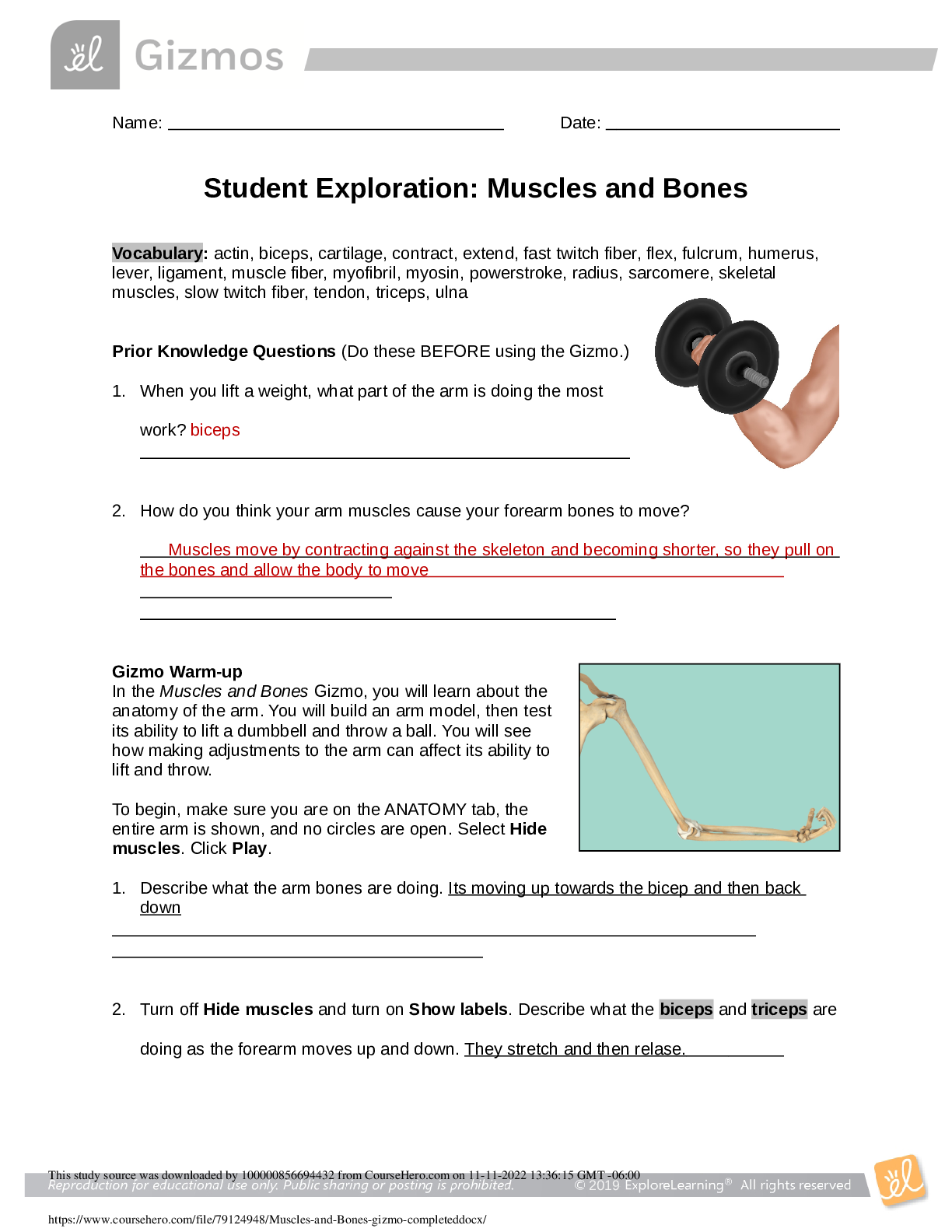


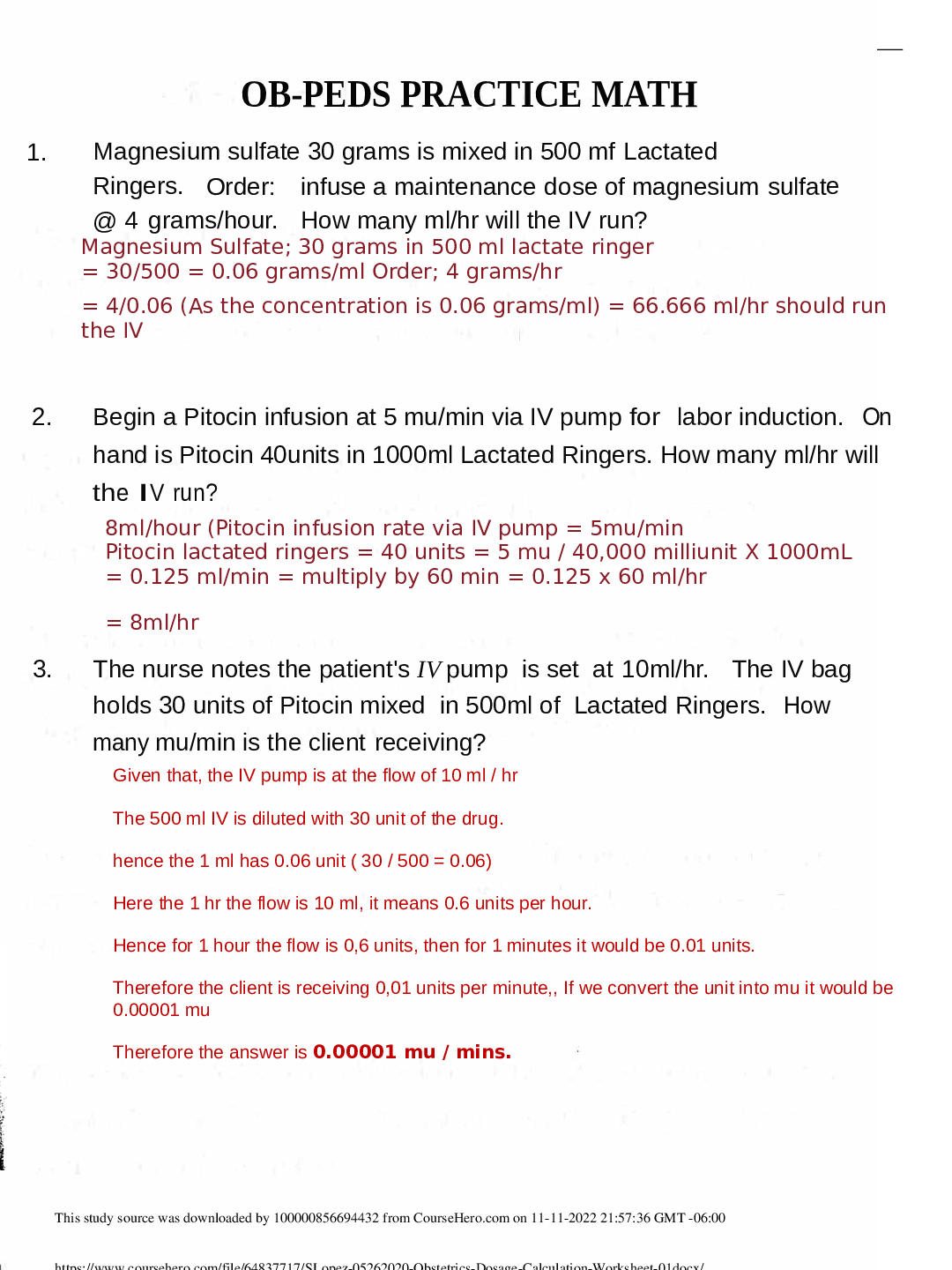

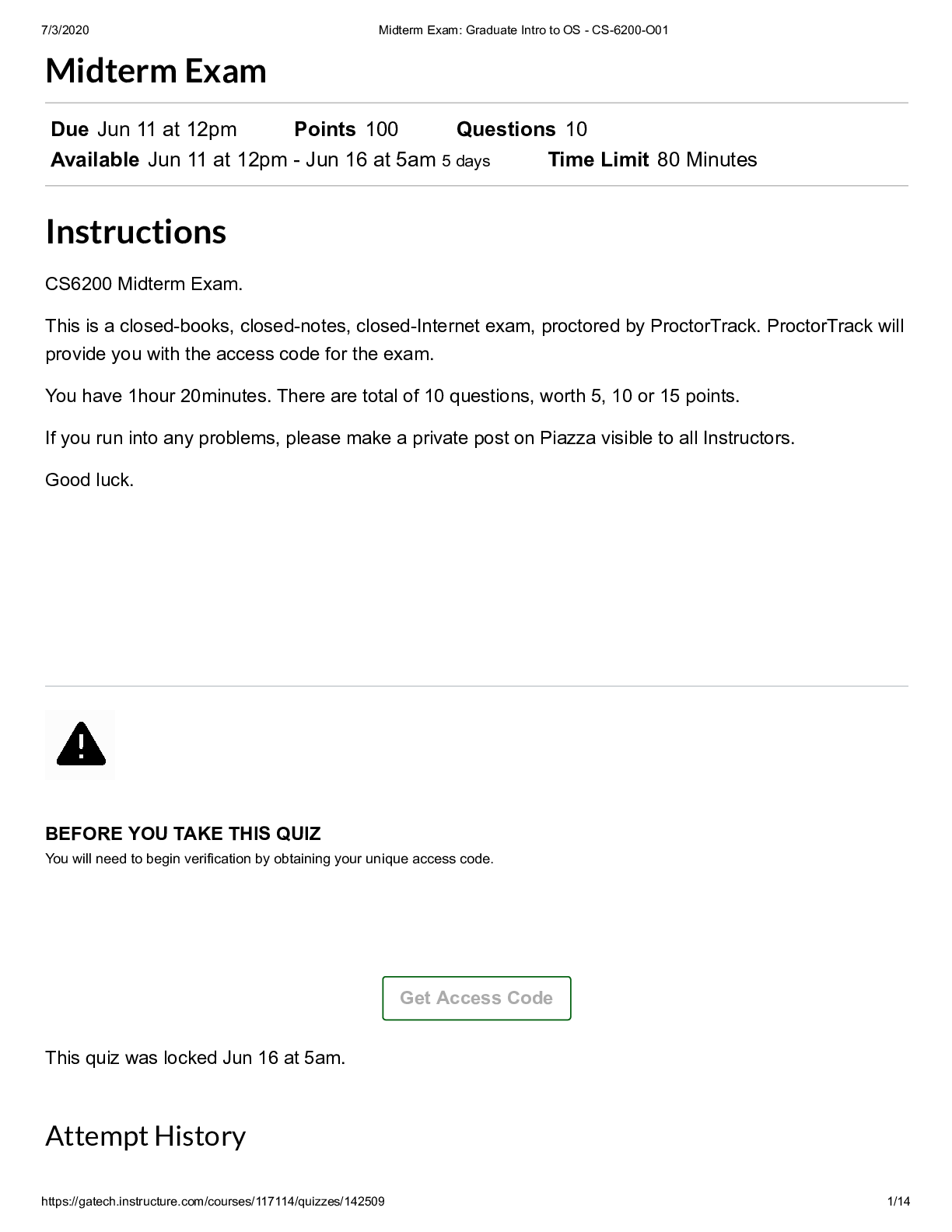
.png)
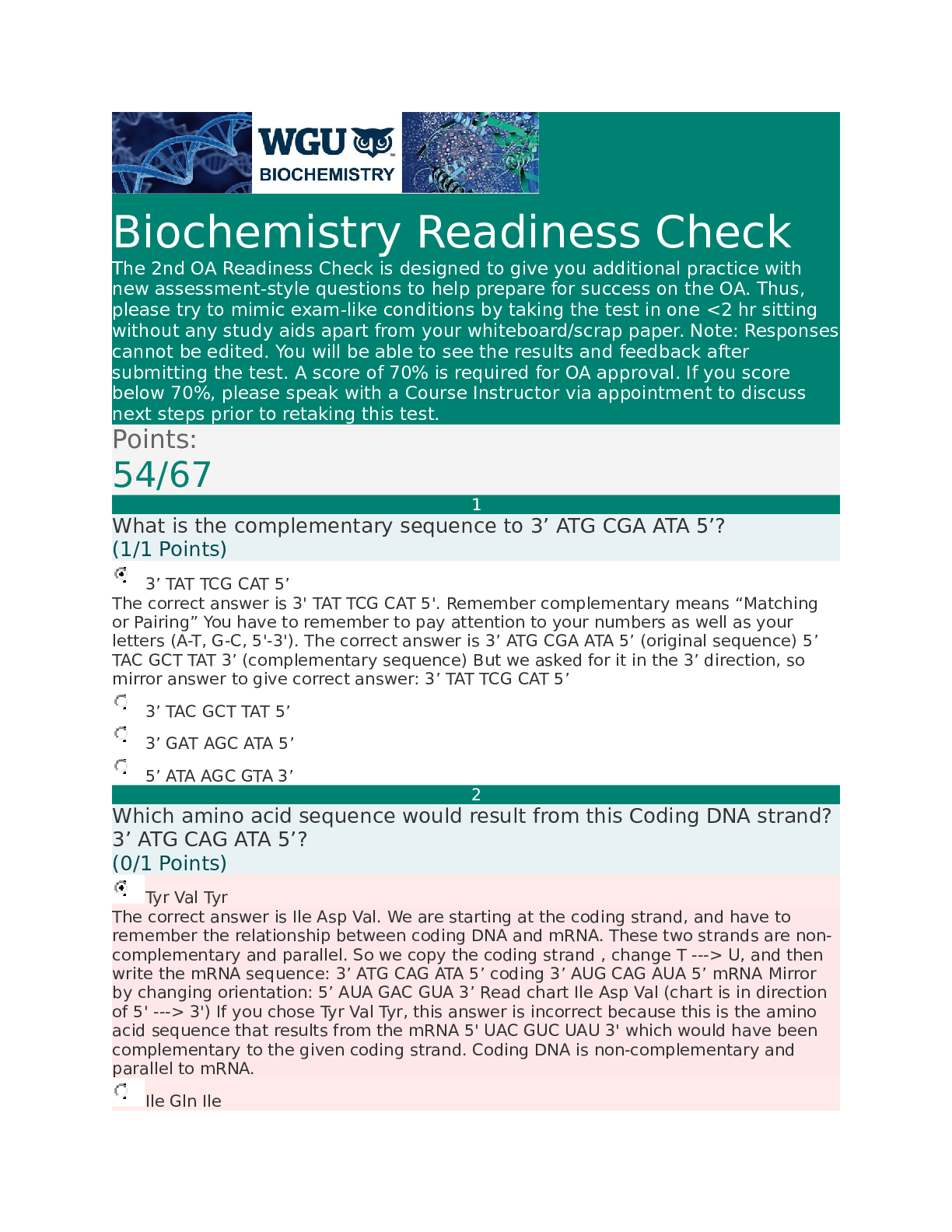
.png)
.png)
.png)
